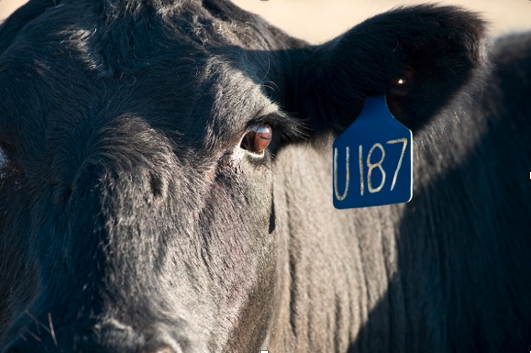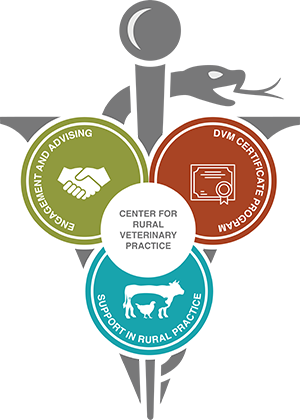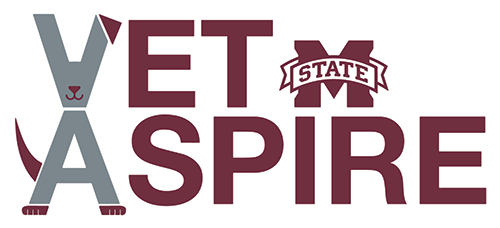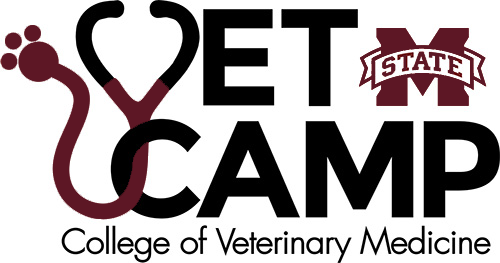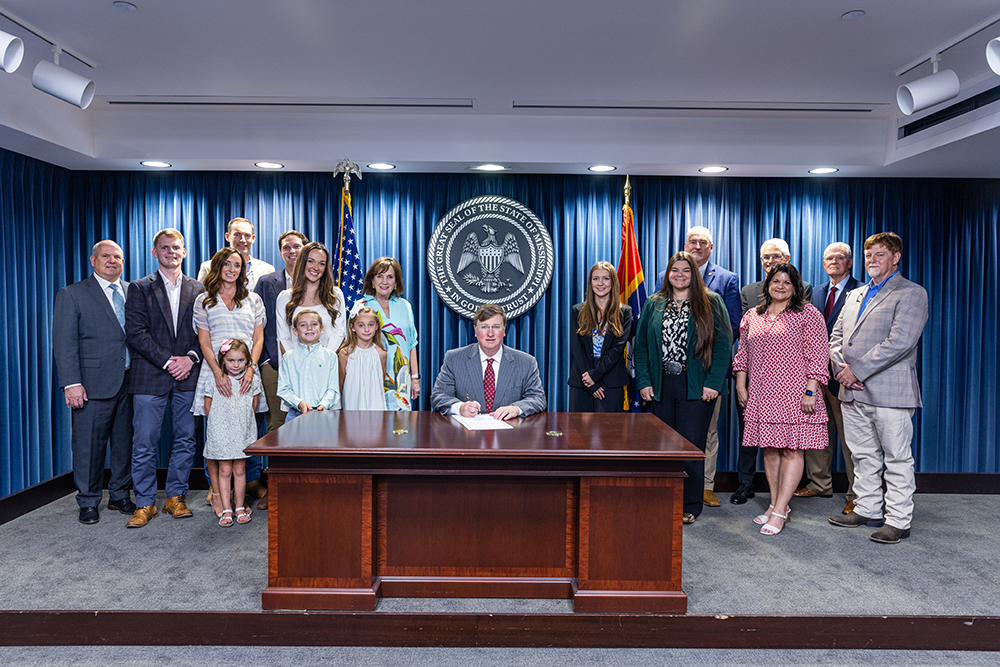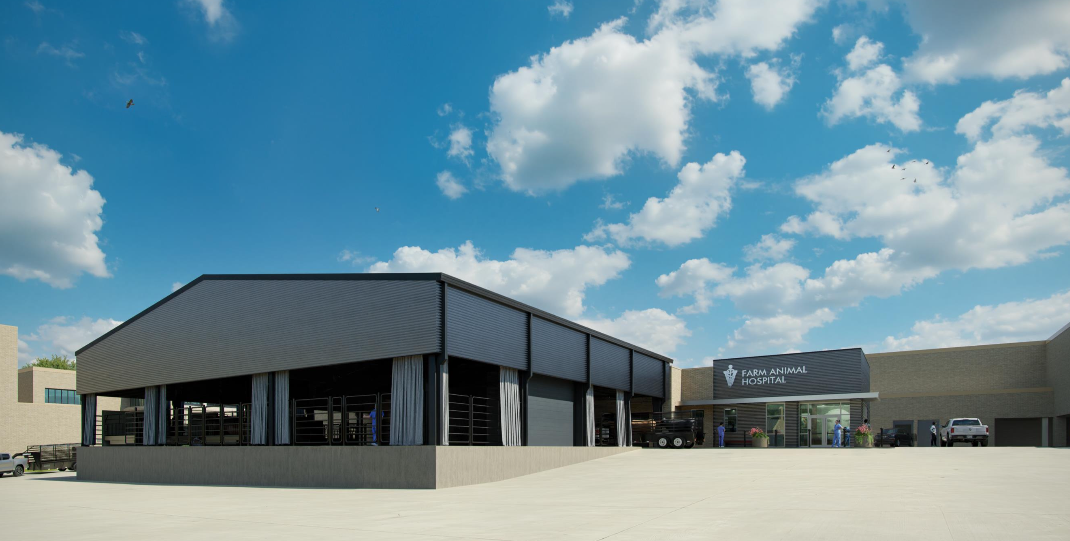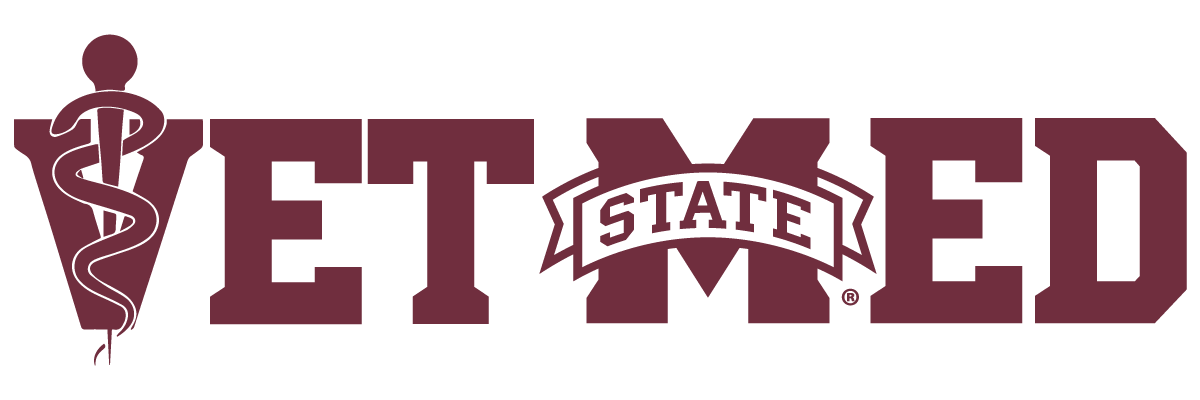The Center for Rural Veterinary Practice (CRVP) was established as a center within Mississippi State University College of Veterinary Medicine (MSU CVM) in 2024. The mission of the CRVP is to address the shortage of veterinary services in rural Mississippi, and this center focuses on preparing Doctor of Veterinary Medicine (DVM) students and veterinary medical technology (VMT) students for rural mixed animal practice.
There has been a long tradition of preparing students for rural practice at MSU CVM, and the CRVP builds upon the successful 2-and-2 veterinary curriculum and initiatives such as the Enhanced Clinical Practicum program.
Three-Part Comprehensive Plan
- Engagement with 4-H and FFA, and one-on-one advising
- Rural Veterinary Certificate for veterinary students
- Coaching to provide support early career veterinarians in rural practice
Part One: Engagement and Advising
- Development of 4-H & FFA programs to engage youth from rural areas
- Referral of interested high school students by rural practitioners
- One-on-one advising for rural applicants
Engaging with 4-H and Future Farmers of America (FFA) introduces young people to veterinarians and veterinary technicians.
Once Mississippi high school students complete 4-H or FFA programs designed by MSU CVM, or are referred by rural veterinarians, they become Rural MSU Vet Med Scholars and receive one-on-one advising from the MSU CVM. Admission to the VMT program or DVM program is not guaranteed but the advice given strengthens applications.
The MSU CVM also runs VetAspire and provides high school and undergraduate students with the opportunity to spend a day as a veterinarian.
VetCamp is also offered to students ages 10 to 17 with dreams of one day becoming a veterinarian, veterinary technician, scientist or working in an animal-focused career.
Part Two: Rural Veterinary Certificate Program
This is a four-year certificate program that veterinary students complete at the same time as the DVM degree without additional tuition costs.
Rural Veterinary Practice courses in the first two years provide opportunities for students to work through cases commonly seen in rural practice. Costs are considered and decisions are based on the finances of the client.
Wet labs and clinical electives help students develop hands-on skills needed for rural practice.
with course leader, Dr. Kristie Chavez.
Part Three: Support in Rural Practice
Coaching is provided to veterinarians in rural practice to help them address the challenges of treating difficult cases, engaging with the community, learning advanced medical or surgical procedures, managing personnel, and buying into, or starting a practice.
Faculty from the Center and practitioners from our Enhanced Clinical Practicum (ECP) program serve as coaches and use their experience to guide early-career veterinarians.
Supporting Veterinary Medical Technologists
The MSU CVM is proud to have a Veterinary Medical Technology (VMT) program that offers a Bachelor of Science degree. Graduates become certified veterinary technicians (CVTs), and they are highly trained medical professionals.
The Center for Rural Veterinary Practice supports the VMT program and helps to prepare its students for rural practice.
Increasing the number of CVTs is an important component of the CRVP’s plan to address the shortage of veterinary services in rural areas.
The Dr. Mac Huddleston Rural Veterinary Scholarship
In 2024, legislation was passed to establish a new scholarship program to address the shortage of veterinarians in rural areas. This program was named after veterinarian and long-serving MS Representative Dr. Mac Huddleston, and it provides full in-state tuition and fees for two in-state students in each class of the DVM program at MSU CVM.
Scholarship recipients agree to practice in a rural area of Mississippi for at least four years after graduation, and these new graduates will immediately contribute to the rural communities they work in.
A Curriculum That Builds Competence and Confidence for Rural Practice
A point of pride for the MSU CVM is its 2-and-2 veterinary curriculum. At most other veterinary schools, students spend almost three years in classes before they enter their clinical year. At MSU CVM, students in the DVM program spend only two years in classes and laboratories and have two full years in clinics.
This 2-and-2 curriculum better prepares students for rural practice and gives them the competence and confidence to succeed.
MSU CVM has a mixed animal curriculum without tracking. Graduates are well prepared for rural mixed animal practice.
Enhanced Clinical Practicum (ECP) Program
Introduced in 2020, the ECP program increases exposure of MSU CVM veterinary students to private practice.
All MSU CVM students spend two four-week rotations in carefully selected and monitored practices learning directly from veterinarians who are approved as ECP practitioners. One of the experiences must be with a mixed animal practice.
Primary Care/General Practice Training
With two full years in clinics, students in the MSU CVM veterinary curriculum gain significantly more primary care/general practice experience than students at other veterinary schools, and this prepares them for rural mixed animal practice.
Primary care core rotations include:
- Community Veterinary Service (small animal general practice); 4 weeks
- Emergency/Critical Care (small animals); 4 weeks
- Large Animal ICU; 4 weeks
- Equine Medicine/Surgery; 4 weeks
- Food Animal Medicine/Surgery; 4 weeks
- Large Animal Ambulatory; 2 weeks
- Population Medicine; 4 weeks
- Enhanced Clinical Practicums; 8 weeks
- Spay/Neuter rotation; 2 weeks
- Animal Emergency and Referral Center; 2 weeks
Surgical Training
Competence and confidence come from hands-on experience, and veterinary students at MSU CVM perform a very high number of surgeries in the four years of their DVM program. They start performing surgeries in September of their second year when they have only been in veterinary school for fifteen months, and this continues through a two-week Spay/Neuter rotation in their fourth year.
By the time of graduation, each MSU CVM student performs 90 spay/neuter surgeries on average. MSU CVM graduates are proficient at performing spay/neuter surgeries and the competence and confidence they acquire carries over to other surgeries and procedures. They are ready to tackle the challenges of rural mixed animal practice.
Shelter Medicine and Primary Care Clinic
Animal shelters and rescue groups in Mississippi must sometimes care for animals with dental, medical, and surgical problems. Some local practitioners provide this type of care, but in 2025 the MSU CVM established a small clinic to provide outpatient services to unowned dogs and cats from animal shelters and rescue groups.
The Shelter Medicine Primary Care Clinic is a student-run, faculty-supervised facility where DVM students and VMT students work together to provide veterinary care at minimal cost to the animal shelters and rescue groups. No owned animals are seen at the clinic, and it only provides outpatient services during the day from Monday to Friday.
Students gain hands-on skills in the clinic, and they consider the financial aspects of running a small private practice while providing veterinary care and gaining hands-on experience. They make financial decisions and practice on the spectrum of care. The modular building they work in is small and it is the type of clinic they might construct in the future if they start their own practice.
Large Animal Practical Training
Successful large animal practitioners expand their services beyond routine veterinary care and MSU CVM students are taught additional procedures that generate revenue in private practice.
Specialists in animal reproduction called theriogenologists teach students how to perform breeding soundness examinations (BSEs) in bulls and artificial insemination in horses. Large animal clinicians in the farm animal hospital teach techniques for managing foot problems in cattle using a hydraulic tilt table that allows safe and effective restraint of the animal. Students learn how to address herd problems and identify systems issues by experts in the field of Population Medicine.
Improved Clinical Facilities
In 2024, the Mississippi Legislature appropriated funds to construct new clinical facilities at the MSU CVM. A new cattle haul-in facility and new farm animal hospital are under construction and will open in 2027.
New clinical facilities will expand the capacity of the Animal Health Center and allow more large animal services to be provided. Funding has been provided for new farm animal (cattle, goats, and sheep) facilities and it is hoped that additional funds will be appropriated in the future to renovate equine facilities and expand the small animal hospital.
The new haul-in facility will allow producers from further away to bring cattle to the MSU CVM for veterinary services. It will also serve as an example of the type of facility a veterinarian might build at their practice to increase efficiency and expand the area they serve.
Haul-in facilities for cattle allow mixed animal practitioners in rural areas to work with cattle more efficiently. Cattle brought to the facility can be worked into the daily schedule of a mixed animal practice and emergencies are seen in a well-equipped and safe environment. Addition of a haul-in facility expands the radius of veterinary services provided because cattle producers located further away can transport their animals to the facility for care. This is an important strategy for addressing the shortage of veterinary services in rural areas.
Federal Programs Supporting Rural Veterinary Services
Two federal programs exist to increase or improve veterinary services in rural areas: the Veterinary Medicine Loan Repayment Program (VMLRP) and the Veterinary Services Grant Program (VSGP).
The CRVP encourages students and graduates to take advantage of these programs, and there have been nine VMLRP practitioner awardees and two VSGP awardees in Mississippi to date.
